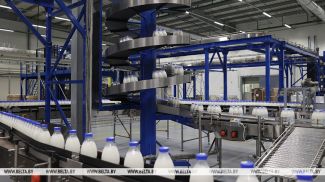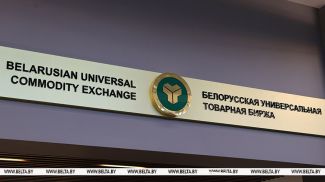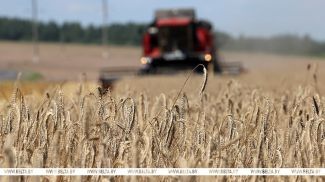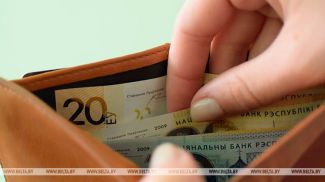MINSK, 10 December (BelTA) – Belarusian households and enterprises will not feel the impact of the counter-sanctions, Belarusian Prime Minister Roman Golovchenko said at a meeting with members of the House of Representatives and the Council of the Republic in the Oval Hall to discuss a package of budget bills, BelTA has learned.
On 1 January, in retaliation to the sanctions, Belarus will introduce a food embargo on a number of goods from the states that carry out unfriendly actions against Belarus. "We have repeatedly warned that actions against our country will not go unanswered. When making this decision, we calculated the risks. It is clear that no counter-sanctions action is absolutely painless. Nevertheless, we analyzed the experience of our Russian partners, who took such a step in 2014, took into account some issues that were overlooked at that time," Roman Golovchenko said.
According to him, when compiling the lists of embargoed commodities, first of all, the government proceeded from the capabilities of domestic manufacturers. "Fish and fish products will not be on the blacklist, because, unlike Russia, we do not have access to the sea. Such sensitive items as baby food, special food for people with certain diseases will not get there either. Our producers are able to satisfy the domestic demand for all other items, except for certain types of vegetables and fruits," the prime minister said.
As for vegetables and fruits that do not grow in Belarus, for example, tangerines or persimmons we see no problem here, the prime minister said. “We import them from several countries, not only from Italy, Spain, which have fallen under the embargo but also from Morocco, South Africa, Brazil, Turkey. To prevent any deficit in these products on the domestic market, the MART has been instructed to help importers quickly reorient to goods from other countries. For example, we have long received proposals from the EAEU and CIS partners, who are interested in increasing the supply of fruits and vegetables, dried fruits and nuts to our country,” said Roman Golovchenko.
“Our processing enterprises will not be affected by the embargo, as raw materials will be imported under quotas. The procedure for issuing quotas has also been determined,” the prime minister added.
“The decision is unconventional for us, so there may be some difficulties. I am confident, however, that this decision is the right one, absolutely objective. Possible bottlenecks will be adjusted in the process of implementation of new rules. I think the population has nothing to worry about,” said Roman Golovchenko.
As BelTA reported, a ban on the imports of goods from the European Union and its member states, the United States, Canada, Norway, Albania, Iceland, North Macedonia, the United Kingdom of Great Britain and Northern Ireland, Montenegro and Switzerland comes into force on 1 January 2022.
The list of products banned for import includes pigs, cattle meat, pork, a number of by-products, salted, dried or smoked meat, food flour from meat or meat by-products, milk and dairy products (with some exceptions), vegetables, except for those intended for sowing, fruits and nuts, pig and poultry fat, cattle, sheep or goat fat, lard-stearin and other animal oils, sausages and similar products, confectionery, salt and other goods. The decree will not affect the goods imported by Belarusians for personal consumption, as well as those intended for baby food, and a number of other critical import commodities.













